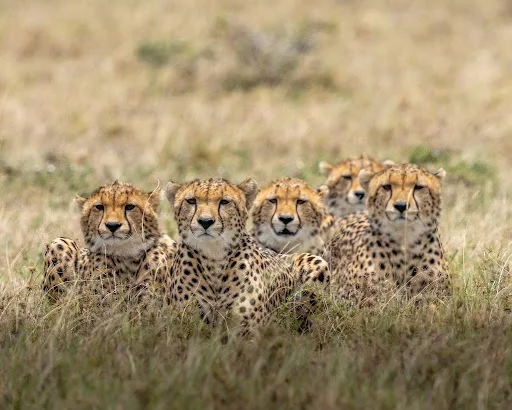NTCA, Madhya Pradesh Forest Department, WII, Namibian, and South African Experts Join Forces
In an ambitious endeavor to reintroduce cheetahs in India, Project Cheetah has been initiated by the National Tiger Conservation Authority (NTCA) in collaboration with the Madhya Pradesh Forest Department, Wildlife Institute of India (WII), and cheetah experts from Namibia and South Africa. This collaborative effort aims to implement the "Action Plan for Introduction in India" and bring the majestic cheetah back to its natural habitat.
To ensure the successful implementation of Project Cheetah, a Steering Committee has been formed, comprising eminent experts and officials who played a pivotal role in the triumphant tiger reintroduction projects at Sariska and Panna Tiger Reserve. The committee's expertise and experience will oversee the various aspects of the project, ensuring a well-coordinated and effective approach.
Project Cheetah marks a significant step towards conserving and reintroducing a critically endangered species in India. Cheetahs, known for their incredible speed and agility, once roamed freely across the Indian subcontinent. However, due to various factors, including habitat loss and hunting, they became extinct in India nearly seven decades ago.
The reintroduction of cheetahs is expected to have several positive impacts on India's ecosystem. As an apex predator, cheetahs play a crucial role in maintaining the ecological balance by regulating prey populations. Their presence can contribute to the conservation of other species and the overall biodiversity of the region.
The collaboration with international cheetah experts from Namibia and South Africa brings valuable knowledge and experience to the project. These experts have successfully implemented cheetah conservation and reintroduction programs in their respective countries, offering valuable insights and best practices that can be applied to the Indian context.
The implementation of Project Cheetah will involve careful planning and execution, considering factors such as suitable habitats, prey availability, and community engagement. It is crucial to strike a balance between conservation efforts and addressing the concerns and needs of local communities residing in the project areas.
The reintroduction of cheetahs in India is a testament to the commitment of all stakeholders involved in wildlife conservation. By working together, the NTCA, Madhya Pradesh Forest Department, WII, and international experts aim to restore the natural heritage of the country and contribute to global conservation efforts.
As Project Cheetah progresses, continued research, monitoring, and adaptive management will be essential to ensure the success of the reintroduction program. The project signifies a renewed hope for the conservation of endangered species and underscores the importance of preserving India's rich biodiversity for future generations.
Through the collective efforts of all stakeholders and the support of local communities, Project Cheetah aspires to witness the graceful cheetahs once again sprinting across the landscapes of India, symbolizing a remarkable triumph in wildlife conservation.

 Editor
Editor
